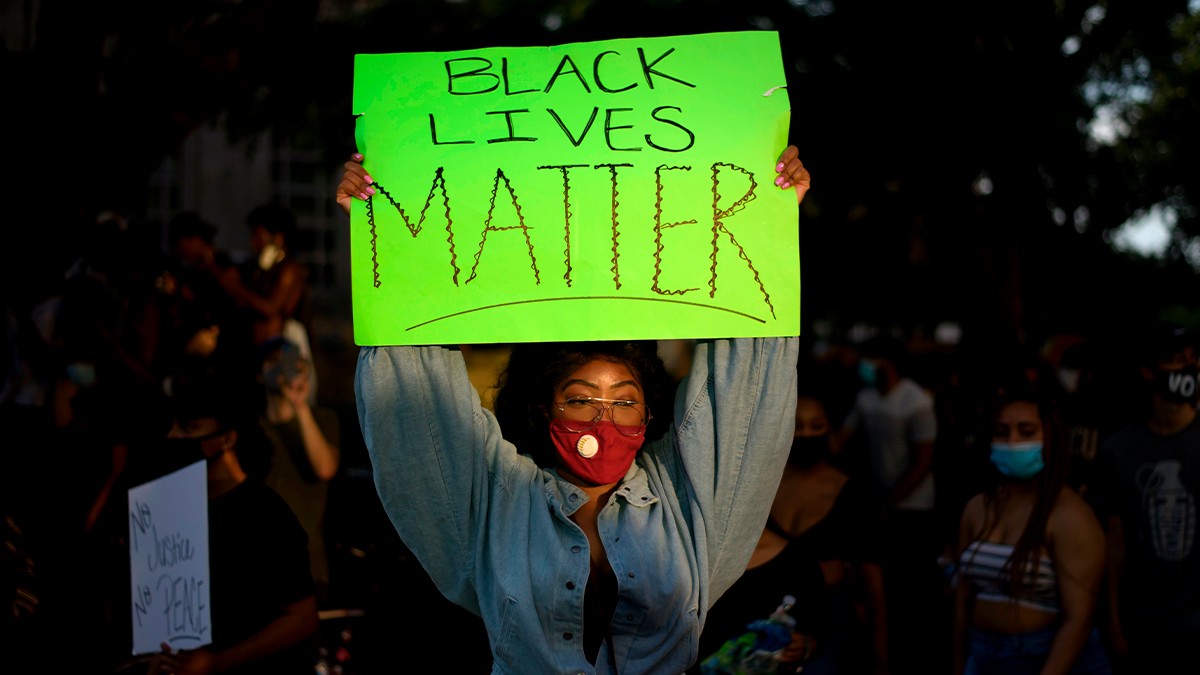Darden Professor Laura Morgan Roberts and her co-author Ella Washington write for Harvard Business Review on how U.S. businesses must take meaningful action against racism. Read the full article to learn more.
No matter your racial, political, or other identity, these events are almost impossible to escape. In particular, millions of Black people and their allies are hurting. And these issues are not ones that organizations or their leaders — from CEOs at the top of the hierarchy to team managers on the frontline — can ignore.
Roberts and Washington outlined three common missteps to avoid, including keeping silent, becoming overly defensive and overgeneralizing.
On keeping silent, Roberts and Washington write: “It is the leader’s responsibility to try, conveying care and concern for all employees but especially targeted groups. As Desmond Tutu once said, ‘If you are neutral in the situations of injustice, you have chosen the side of the oppressor.’ You might be tempted to rest on the laurels of your organizations’ diversity statements and active employee resource groups. But that is not enough.”
On becoming defensive, the authors share: “Another common misstep when approaching uncomfortable conversations about racial injustice is to react defensively, especially when our world views, positions, or advantages are questioned or challenged. For instance, when learning about police brutality against unarmed Black people, one reaction might be to search for evidence about what the victim did to deserve abuse, rather than demonstrating compassion and empathy. Leaders must resist such reactions because they do not allow for constructive engagement.”
When it comes to avoiding overgeneralizations: “Instead of presuming that all members of your in-group or out-group think and feel similarly and talking about what ‘everybody knows,’ how ‘all of us feel,’ and what ‘none of us would ever do,’ leave room for dissenting points of view. When in doubt, ask employees about their individual experiences to honor their uniqueness. Think about how you can allow your employees to discuss what’s happening without putting them on the spot or asking them to speak for everyone in their identity group.”
Roberts and Washington share ways for individuals to take meaningful action, at any level of an organization. Managers have an important role to connect with employees and Acknowledge, Affirm, and Act. The authors share specific examples of organizations and managers who have successfully initiated conversations and actions of support.
Read the full article to learn ways to make a meaningful difference.
As part of UVA Darden’s Leadership Unscripted series, Roberts hosted a thought leadership event this spring with Airbnb Global Head of Diversity Melissa Thomas-Hunt and incoming Wharton School Dean Erika James — both of whom are former Darden professors. They took a critical look at the state of diversity and inclusion in the workplace.
The Darden Report recapped the March event and shared video from the conversation.
“The issue of inclusion becomes framed as a question of accommodating and lowering standards, rather than a question of enhancing, strengthening and amplifying the organization,” said Roberts, whose book Race, Work and Leadership: New Perspectives on the Black Experience, was published in 2019. “How do we channel the strength, power and potential of diversity while challenging some of those misguided assumptions that people call forth so frequently?”
Read Dean Scott Beardsley’s affirmations of inclusivity in his statement to the Darden community earlier this week.
Check out faculty thought leadership published on Ideas to Action. And stay connected with us via social media: Facebook, Instagram, LinkedIn, Twitter, WeChat





